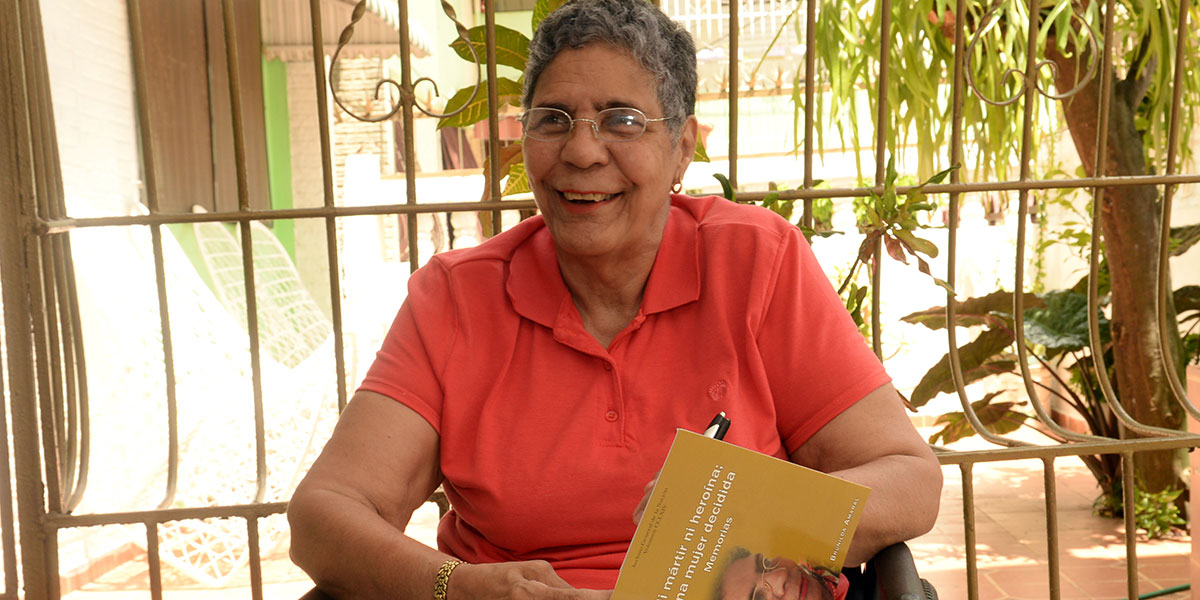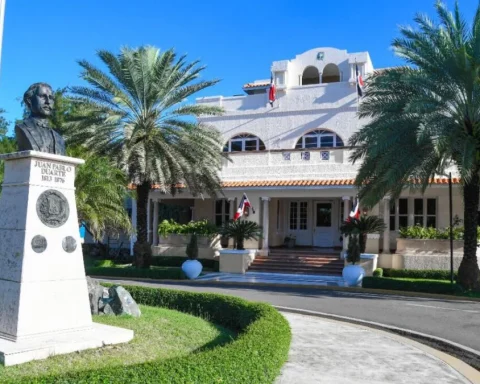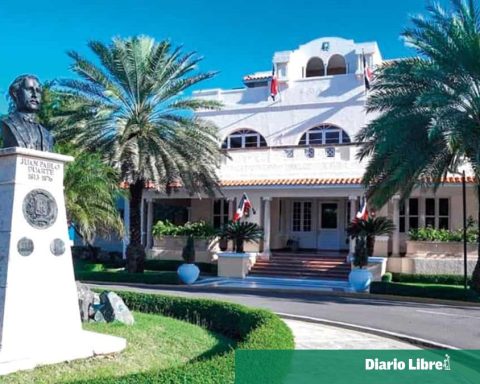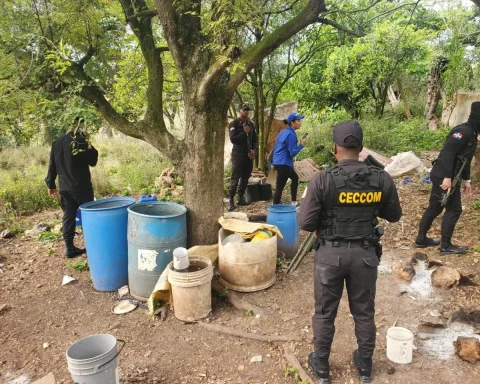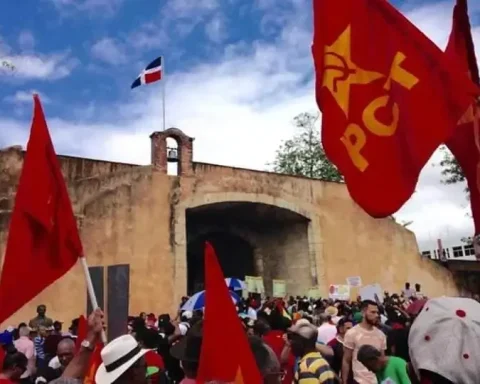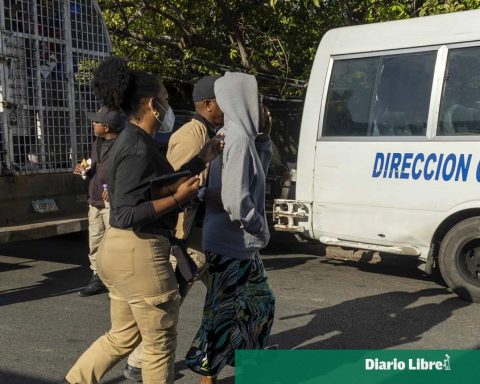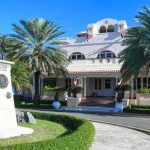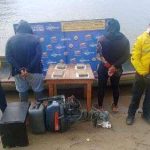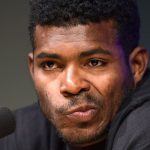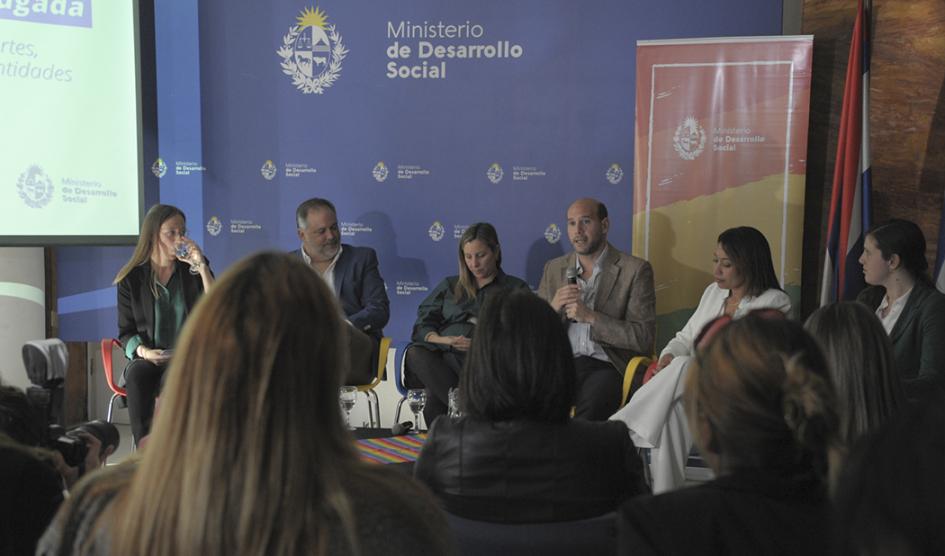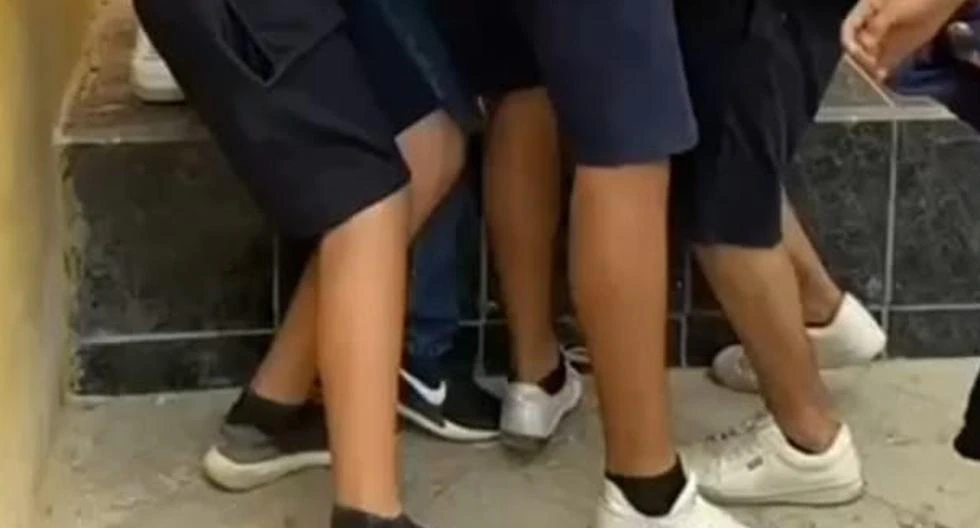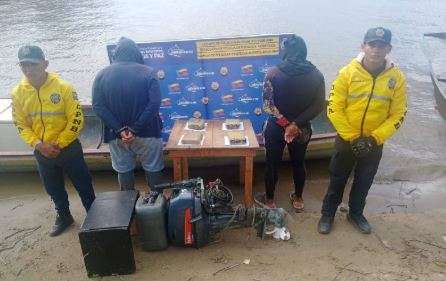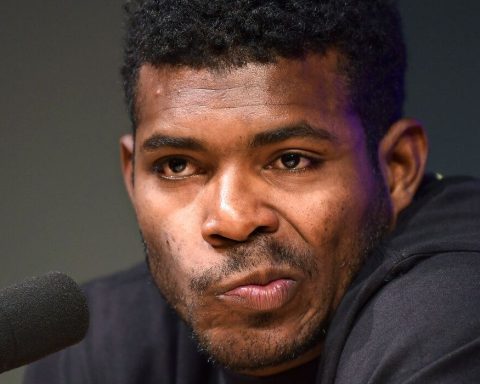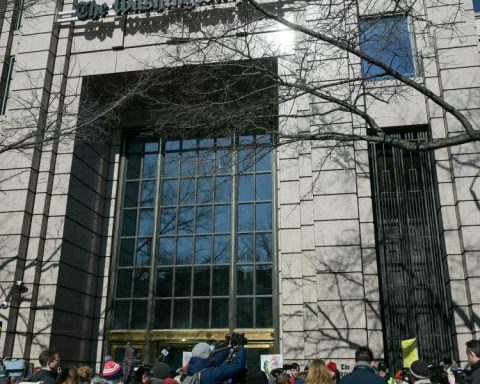Police forces paralyzed her legs at a student protest in February 1966, but they never stopped the wings of this revolutionary woman
It was February 9, 1966, the country was overwhelmed by the death of six students and a balance of 40 injured young people who were attacked by police forces in a historic protest of student movements in front of the National Palace.
They demanded better conditions for the state university, the democratization of education and greater freedoms. Among the wounded was Brunilda Amaral, a young woman who was turning 19 at the time and was in the second grade of secondary school at the Instituto de Señoritas Salomé Ureña. Participating in that protest was something that she was not willing to miss. Revolutionary blood ran through her veins. As a model, she had her mother and her brother Arismendy Amaral, examples of resistance at the time.
56 years after the event, Brunilda remembers every detail of that tragic day. She still does not understand how a student protest, many with their backpacks loaded with books, turned into a battlefield in which some of her classmates were shot to death and others were left with consequences for life.
What was always clear to her was that the bullet that shattered her spine and would paralyze her legs forever would not prevent her from pursuing her goals.
Defying that medical sentence that gave her less than 24 hours to live, Brunilda was strengthened by her “stubborn and tenacious” spirit. To these qualities she attributes many of her achievements, such as becoming a librarian and writer, competing internationally as an athlete and having an independent life, very complex aspirations to achieve in an environment of exclusion for a woman in a wheelchair. In an interview for elCaribe, Brunilda Amaral recalls her darkest moments and her sweetest victories with the conviction and satisfaction of fulfilling a certain purpose, because life without effort seems insipid to her.
- The 1966 protest
No matter how many years have passed, this is not easy… I lived next to the Salomé Ureña Institute for Ladies. We (students) had the intention of making a march to protest in front of the National Palace and asking the President of the Republic, who at that time was Héctor García Godoy, provisional president, that the UASD recognize the Provisional University Council, and that he remove from the high schools and schools to intervening troops; also for the democratization of education and for the UASD to be more open, thank God that it has been for a long time.
I was a leader of the Union of Revolutionary Students. I was in the second grade of high school. He was 19 years old.That day (February 9, 1966) the Federation of Dominican Students, all the university groups, called a strike. When we went that Wednesday, we hung out with high school students. It was all very peaceful. It was a commission to speak with the president, but he was not there and another person received them. We were even playing, as was done at that time. When the commission in charge of talking with the president is there, Romeo Lliná arrives and gets up on the corner where Codia is to explain to us what they said and what they agreed on. Next to him was a policeman who says that they pushed him, that they threw cold, cold at him, the thing is that he (police) started shooting and that turned into pandemonium. Inside the gates of the Palace they were wearing gas masks (police officers), which means that this was not fortuitous. We did nothing, what we had for weapons were the books. There was no provocation. Some did not have permission from their parents and left their homes for there, instead of going to school.
- very close to death
When they started shooting, we ran to the front lawn, but I didn’t finish landing, I got hit by a bullet in the spine and fell right away. I felt like half my body had been taken away. My brother and another friend took me to the hospital, and in the car they put another young university student on top of me, and he died in my arm. That day six students died and 40 were injured. I lived for many years remembering those horrors. At night he did not sleep, because he repeated the same scene. At that time there were no psychologists or psychiatrists, that time was difficult and they understood that they were for crazy people. - the first time i cried
That was terrifying. And look, I lived through the April War and saw many things. That was the most cowardly action I’ve ever seen. I remember a lady who lived around the corner from my house, who killed a son there (in the protest) and she saved food for him every day. She erased from her subconscious that it happened. It was so heartbreaking that her brain didn’t process it. At home there were some doctors from Hungary and France, who came to show solidarity with the war wounded. They stayed at my house, and I taught them to dance merengue, in December, and in February they took me. We were 24, and when we got there, still badly injured, in Hungary, I remember that we were like a zoo, because we were black. There was a day in the hospital in Hungary that was unforgettable, because I became aware of what my reality was, because here I hardly had time to digest, because I always had company. In the hospital, there were four of us in a room, and one day they went out to see the surroundings, and the only one who couldn’t walk was me. One had an amputated leg, another had been hit in the face, they had 18 operations. There I find that I don’t understand the language, I don’t have anyone, any family member, I don’t walk, and I thought how am I going to handle myself. That day I felt an incredible despair and it was the first time I cried in the whole process. - “So far you got”
I wanted to come home to eat rice and beans… When I came back from Hungary, after 22 months, I came here with 80 pounds. My mom when she saw me she thought they had sent me homeless. I arrive and find that everywhere there are barriers, and I am in a wheelchair, I feel powerless to move. Everywhere high sidewalks. In addition, a colleague tells me, you are no longer of any use to us, because you in that wheelchair can give us away, you have come this far. In other words, I find myself with a very ugly and difficult reality. - my own roof
The one who reads my book says that he has not seen people who have moved as much as I have. (She expresses between laughs), since I was little I was stumbling and saying my God I would like to buy a house), because I am tired of going from here to there. I was already up for eviction when I came here. (current house). The day I entered here, January 15, 1981, I opened my arms, because it had cost me to have a roof of my own. It was for 20 years, and I paid RD$94.25, an outrage for me, I earned RD$140.00. I’ve been juggling here with my mom. But with all those uncertainties, I felt like I was finally in a place of my own. - United to the UASD
My colleagues at the FED see the situation and tell me that they need me to go to work for the FED as a way to get me out of the house. There she earned RD$60.00 as an assistant secretary. They took me in a transport, and with my two crutches I went down the stairs of my house because I lived on the second floor. Then about three months later, the University Council appointed me. - My graduation
The day I graduated in 1983 was a very significant day, as it was when, precisely in that same year, the Dominican Librarians Association awarded me a recognition as librarian of the year, for me it was very significant because I only I knew and I know how much it cost me, because people with physical, sensory or intellectual disabilities find everything very difficult for us. We have to have decision-making power, firmness and perseverance. I am a persistent and constant person. I never gave up, because there were conditions to give up. I really am very stubborn and stubborn. I don’t remember the last time I gave up. - Only I can limit myself
Since 1973 I have been a wheelchair athlete. She was co-founder of the Foundation for People with Disabilities, the Circle of Women with Disabilities and the Club on Wheelchairs. In 1974 I got my first license. I drive with my hands, with a manual control, there is an attachment for everything thanks to technology and engineering. The I can’t is nonsense. It may be that I limit myself but no one else. Mechanics and innovations have made it possible for people with disabilities to have a more independent life. - the busy reader
I remember that when they called the roll, a teacher told me: Amaral Brunilda, the first on the list and last in the class. (She says between laughs). I also belonged to the Federation of Dominican Women, the June 14 Movement and the UER, and I didn’t even have time for the basics. I entered the Revolutionary Movement at the age of 16. I participated in the Revolution, but really I was in everything except mass. At the age of 19 I should have been a high school graduate, but everything was very convulsive. I am a librarian by profession, because since I was little I have been among books. I had Domingo Moreno Jiménez, a Dominican poet, as a neighbor. As my thing was always to read since I was little, he gave me the reader, because he always found me with my head inside the books. - my 75 years
My 75th birthday was last year. I thought that day would never come, because they didn’t give me more than 24 hours when they injured me, because I lost too much blood. Someone left a radio in the hospital and I heard on the Local Front, from Radio Mil Informando, that Miss Brunilda Amaral had just died, and with my eyes still closed, I said to myself, but I’m alive. Although I had the experience that I left and came back, but when I came back I realized that I was not the same person, I had a character… I was very foolish and conceited, but it is incredible how human beings change what was important to you before , now it is you who give importance to things, but you have to learn that, and I learned it.
July 15, 1965: hard experience
On July 15, 1965, he was in the B3 Constitutionalist Command and the Yankee troops attacked that day, what they called operation mopping up. I was there with Hilda Gautreaux, a Dominican fighter as well, and they threw a bazooka and terribly injured Jacques Viau Renaud, a Haitian commander in the B3 colmando, a Haitian poet and a man in solidarity with this country. I saw when the doctor said that there was no anesthesia, that the leg had to be cut because he was bleeding to death. When I got home I collapsed from seeing so much horror in such a short time. July 15, 1965 was a terrible day. I remember that I jumped from the highest part. At that moment of bursts and shots one does not even think.
as dead
“Someone left a radio in the hospital and I heard on the Local Front, Radio Mil Informando, Miss Brunilda Amaral has just died, and with my eyes still closed, I said to myself, but I’m alive”
Sentence
My 75th birthday was last year. I thought that day would never come, because they didn’t give me more than 24 hours when they injured me, because I lost too much blood.
Persistence
The word is not difficult for me, because if something does not work for me, I will always think of a plan C or plan D.”
Book lover
I am a librarian by profession, because since I was little I have been among books. Domingo Moreno Jiménez, Dominican poet, gave me the reader”
Independence
Mechanics and innovations have made it possible for people with disabilities to have a more independent life.”
Ghost
That day six students died and 40 were injured. I lived for many years remembering those horrors. I didn’t sleep at night.”
